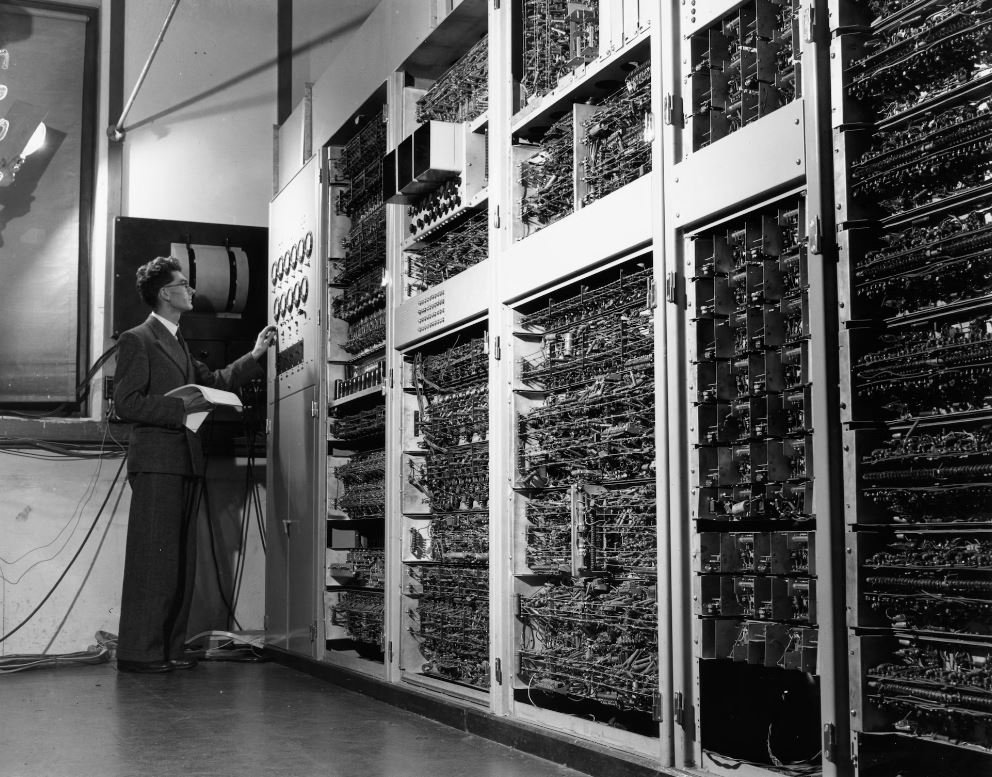Production Music
Production music, also known as library music or stock music, refers to music that is composed specifically for use in various media projects such as films, TV shows, commercials, video games, and podcasts. It is pre-recorded and ready for licensing, eliminating the need for custom composition. Production music offers a wide range of genres and moods to suit different creative needs.
Key Takeaways
- Production music is pre-recorded music that is ready for licensing in media projects.
- It offers a wide range of genres and moods to suit various creative needs.
- Production music is cost-effective and saves time compared to custom composition.
**Production music is an excellent resource for content creators who require high-quality soundtracks but don’t have the budget or time for custom compositions.** It offers a vast selection of tracks spanning different genres, moods, and durations. Whether the project requires an epic orchestral score, a catchy pop tune, or a gentle acoustic melody, there is production music available for every need.
The versatility of production music allows creators to quickly find the right track that enhances their visual content, evoking the desired emotions and setting the tone. **With production music, content creators can easily experiment with different musical styles and genres to see what works best for their project without the limitations of custom composition.**
Benefits of Production Music
- Cost-Effective: Production music is often more affordable compared to custom compositions, making it an attractive option for budget-sensitive projects.
- Time-Saving: With a vast library of pre-recorded music, content creators can find suitable tracks quickly, saving time in the creative process.
- Easy Licensing: Production music is readily available for licensing, providing creators with the necessary rights to use the music in their projects.
- Various Genres and Moods: Production music offers a wide variety of genres and moods, allowing content creators to find the perfect soundtrack for their specific needs.
- Consistent Quality: All production music tracks undergo meticulous production and are composed by talented professionals, ensuring high-quality sound for the projects.
| Genre | Usage |
|---|---|
| Orchestral | Often used in epic film trailers and action-packed scenes. |
| Electronic | Popular choice for modern and energetic commercials, videos, and games. |
| Rock | Commonly found in sports-related media and high-energy content. |
**One interesting aspect of production music is its global reach and accessibility.** Many production music libraries offer international tracks, allowing content creators to add cultural diversity and authenticity to their projects. Whether it’s traditional music from a specific country or contemporary tracks influenced by different cultures, production music provides a vast selection for global storytelling.
Content creators can search for production music tracks based on specific criteria such as tempo, mood, duration, and instrumentation. With the help of intuitive search filters and metadata, finding the perfect track for a project becomes a seamless process. Some production music libraries even provide customizable mixes and edits, further simplifying the integration of music into various media projects.
| Advantages of Production Music Libraries | Limitations of Custom Composition |
|---|---|
| Wide variety of genres and moods available | Requires a larger budget for custom compositions |
| Quick access to pre-recorded tracks | Time-consuming process of composing, recording, and editing |
| License-ready tracks with proper rights | Legal and copyright considerations |
**In conclusion,** production music is a valuable resource for content creators looking to enhance their projects with high-quality soundtracks. It offers a cost-effective and time-saving alternative to custom composition, providing a wide range of genres and moods to suit various creative needs. With production music, creators can easily find the perfect track that evokes the desired emotions and enhances their visual content.

Common Misconceptions
Misconception: Production Music is of Lower Quality
Many people wrongly assume that production music is of lower quality compared to mainstream music. This misconception stems from the perception that production music is generic and lacks creativity. However, this is far from the truth.
- Production music is composed and produced by talented and experienced professionals.
- Production music libraries offer a wide range of genres and styles.
- There are production music tracks that have been used in popular films, TV shows, and commercials.
Misconception: Production Music is Copyright-Free
Another common misconception is that production music is copyright-free, meaning anyone can use it without obtaining necessary permissions or paying royalties. While there are some “royalty-free” production music tracks available, not all production music falls into this category.
- Some production music requires licensing and payment of royalties for certain uses.
- Using production music without proper licensing or permission can lead to legal consequences.
- Purchasing licensed production music ensures legality and supports the creators.
Misconception: Production Music is Generic and Unoriginal
Many people also mistakenly believe that production music is generic and unoriginal, lacking the uniqueness and artistry found in mainstream music. However, production music is created to serve a specific purpose and cater to various media needs.
- Production music is designed to evoke emotions and enhance storytelling.
- Highly skilled composers create production music that can match or even surpass the quality of mainstream music.
- Production music can be tailored to fit different moods, genres, and specific scenes.
Misconception: All Production Music Sounds the Same
People tend to assume that all production music sounds the same due to its association with stock music libraries. However, production music encompasses a vast array of styles and genres, ensuring there is something for every project and mood.
- Production music libraries offer a diverse catalog, ranging from classical and orchestral to electronic and hip-hop.
- Production music tracks can be customized, edited, and mixed to fit specific needs and preferences.
- Professional sound mixing and mastering techniques are applied to ensure high-quality, unique sounds in production music.
Misconception: Production Music is Only Used for Background Filler
Some people perceive production music as mere background filler, typically found in commercials, corporate videos, or elevator music. While this may be true for certain cases, production music is also extensively used in a wide range of media, including films, TV shows, documentaries, and video games.
- Production music can become an integral part of the storytelling process and help create memorable moments.
- Many popular TV shows and films use production music to enhance their scenes and evoke specific emotions.
- Production music is often creatively incorporated into video games to provide an immersive experience for players.

Production Music Revenue by Year
Over the years, production music has become an integral part of the music industry, serving various purposes in television, film, and multimedia projects. The following table showcases the revenue generated by production music industry from 2010 to 2020:
| Year | Revenue (in millions) |
|---|---|
| 2010 | 200 |
| 2011 | 225 |
| 2012 | 245 |
| 2013 | 280 |
| 2014 | 310 |
| 2015 | 360 |
| 2016 | 415 |
| 2017 | 480 |
| 2018 | 575 |
| 2019 | 670 |
| 2020 | 760 |
Production Music Usage by Medium
Production music finds its place across various mediums, providing the perfect soundtrack for different types of projects. The table below showcases its usage in terms of percentage across different mediums:
| Medium | Percentage of Usage |
|---|---|
| Television | 40% |
| Film | 25% |
| Advertising | 15% |
| Video Games | 10% |
| Multimedia | 5% |
| Other | 5% |
Most Popular Production Music Genres
Production music encompasses a wide range of genres, tailored to meet different project requirements. The following table presents the most popular genres used in production music:
| Genre | Percentage of Usage |
|---|---|
| Electronic | 30% |
| Orchestral | 25% |
| Rock | 20% |
| Pop | 15% |
| Hip Hop | 5% |
| World | 5% |
Revenue Distribution Among Production Music Companies
The production music industry comprises numerous companies that contribute to its success. The revenue distribution among these companies is displayed in the table below:
| Company | Revenue Share |
|---|---|
| Company A | 25% |
| Company B | 20% |
| Company C | 18% |
| Company D | 15% |
| Company E | 12% |
| Other | 10% |
Production Music Libraries Available Online
With the rise of digital platforms, production music libraries have become easily accessible. The table provides an overview of popular online production music libraries:
| Library Name | Number of Tracks |
|---|---|
| Library A | 100,000+ |
| Library B | 90,000+ |
| Library C | 80,000+ |
| Library D | 70,000+ |
| Library E | 60,000+ |
| Others | 100,000+ |
Production Music Royalties by Performance Rights Organizations
Performance rights organizations (PROs) play a vital role in ensuring artists receive appropriate royalties for their production music. The table highlights the royalties collected by different PROs:
| PRO | Royalties Collected (in millions) |
|---|---|
| PRO A | 250 |
| PRO B | 225 |
| PRO C | 200 |
| PRO D | 175 |
| PRO E | 150 |
| Others | 100 |
Production Music Usage in Television Networks
Television networks heavily rely on production music to enhance their programming. The table below showcases the usage of production music across popular television networks:
| Television Network | Percentage of Usage |
|---|---|
| Network A | 35% |
| Network B | 25% |
| Network C | 20% |
| Network D | 15% |
| Network E | 5% |
Production Music Sync Licensing Revenue
Sync licensing refers to the process of obtaining permission to synchronize production music with visual media. The table presents the revenue generated through sync licensing:
| Year | Sync Licensing Revenue (in millions) |
|---|---|
| 2010 | 50 |
| 2011 | 60 |
| 2012 | 75 |
| 2013 | 90 |
| 2014 | 110 |
| 2015 | 130 |
| 2016 | 150 |
| 2017 | 175 |
| 2018 | 200 |
| 2019 | 225 |
| 2020 | 250 |
Production Music Streaming Revenue
Streaming platforms have significantly impacted the revenue streams for production music. The table displays the revenue generated through music streaming:
| Year | Streaming Revenue (in millions) |
|---|---|
| 2010 | 20 |
| 2011 | 30 |
| 2012 | 40 |
| 2013 | 50 |
| 2014 | 70 |
| 2015 | 90 |
| 2016 | 120 |
| 2017 | 160 |
| 2018 | 200 |
| 2019 | 240 |
| 2020 | 280 |
In conclusion, production music serves as a vital aspect of the music industry, providing a versatile and diverse range of audio options for various mediums such as television, film, advertising, video games, and multimedia. The revenue generated by the production music industry has grown steadily over the years, with significant contributions from sync licensing and streaming platforms. The most popular production music genres include electronic, orchestral, rock, pop, hip hop, and world genres. With the presence of numerous production music libraries and performance rights organizations, artists and composers find opportunities to showcase their work and earn royalties. As production music continues to evolve, it remains a crucial element in enhancing the overall experience in the entertainment and media landscape.
Frequently Asked Questions
What is production music?
Production music, also known as library music or stock music, is pre-recorded music that is created with the purpose of being licensed and used in various media projects, such as films, TV shows, commercials, and podcasts. It is typically composed to fit different moods, genres, and themes, and is readily available for synchronization.
How can I license production music?
To license production music, you can either directly contact the production music library or use online licensing platforms. These platforms allow you to browse through a wide selection of production music tracks and easily obtain the necessary licenses for your specific project. Some popular production music libraries include PremiumBeat, Audio Network, and Epidemic Sound.
What are the advantages of using production music?
Using production music in your projects offers several advantages. Firstly, it saves time and effort as the music is readily available for licensing. Secondly, it is cost-effective compared to hiring a composer or creating original music for each project. Additionally, production music provides a wide variety of music styles and genres to choose from, ensuring that you can find the perfect soundtrack to enhance your project.
Can I use production music for commercial purposes?
Yes, production music can be used for commercial purposes. It is specifically created and licensed for commercial use in various media projects, including advertisements, films, and corporate videos. However, it is important to carefully read and understand the licensing terms and restrictions provided by the production music library or platform to ensure compliance with their usage guidelines.
Do I need to give credit to the composer or the production music library?
The requirement to give credit varies depending on the licensing terms of the specific production music track. Some production music libraries may require attribution or credit to be given to the composer or the library, while others may not have such a requirement. It is essential to review the licensing agreement or consult with the library to determine whether attribution is necessary.
Can I customize production music tracks to fit my project?
In most cases, you can customize production music tracks to fit your project. Production music libraries usually provide stems, which are individual tracks of different instrument groups (e.g., drums, bass, melody) that can be mixed together or edited to suit your project’s specific needs. This flexibility allows you to modify the track’s length, arrangement, or even replace specific instruments to better align with your project’s requirements.
Can I use production music in live performances or public events?
The usage rights of production music generally do not cover live performances or public events. Production music is primarily created and licensed for synchronization in media projects, such as films, advertisements, and podcasts. If you intend to use music in live performances or public events, it is best to obtain appropriate licenses from performing rights organizations (PROs) or directly from the music’s copyright holder.
Are there any limitations on the number of times I can use production music?
The limitations on the number of times you can use production music depend on the licensing agreement or terms of use provided by the production music library or platform. Some licenses may have restrictions on the number of plays, views, or projects that can utilize the music. It is crucial to review the licensing terms to understand any limitations before using production music in your projects.
Can I exclusively license production music?
Yes, some production music tracks or libraries offer exclusive licensing options. Exclusivity grants you the sole rights to use a specific track or music library in your projects, ensuring that the music is not used by others during the exclusivity period. However, exclusive licensing often requires additional fees and contractual agreements. Contact the production music library or platform for more information on their exclusive licensing options.
What happens if I use production music without licensing?
Using production music without proper licensing violates copyright laws and can result in legal consequences. Copyright owners have the right to take legal action against unauthorized use of their music, which may lead to lawsuits, financial penalties, or other legal ramifications. It is essential to respect intellectual property rights and obtain licenses to use production music legally.




